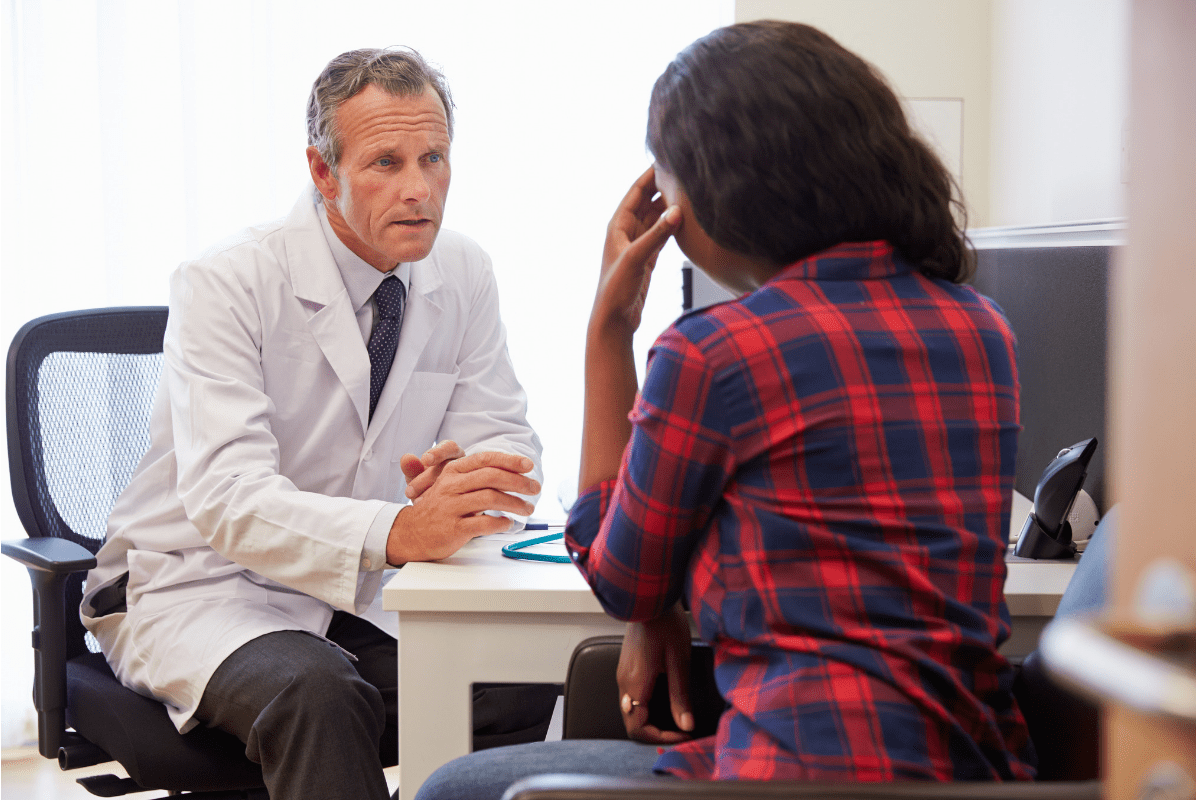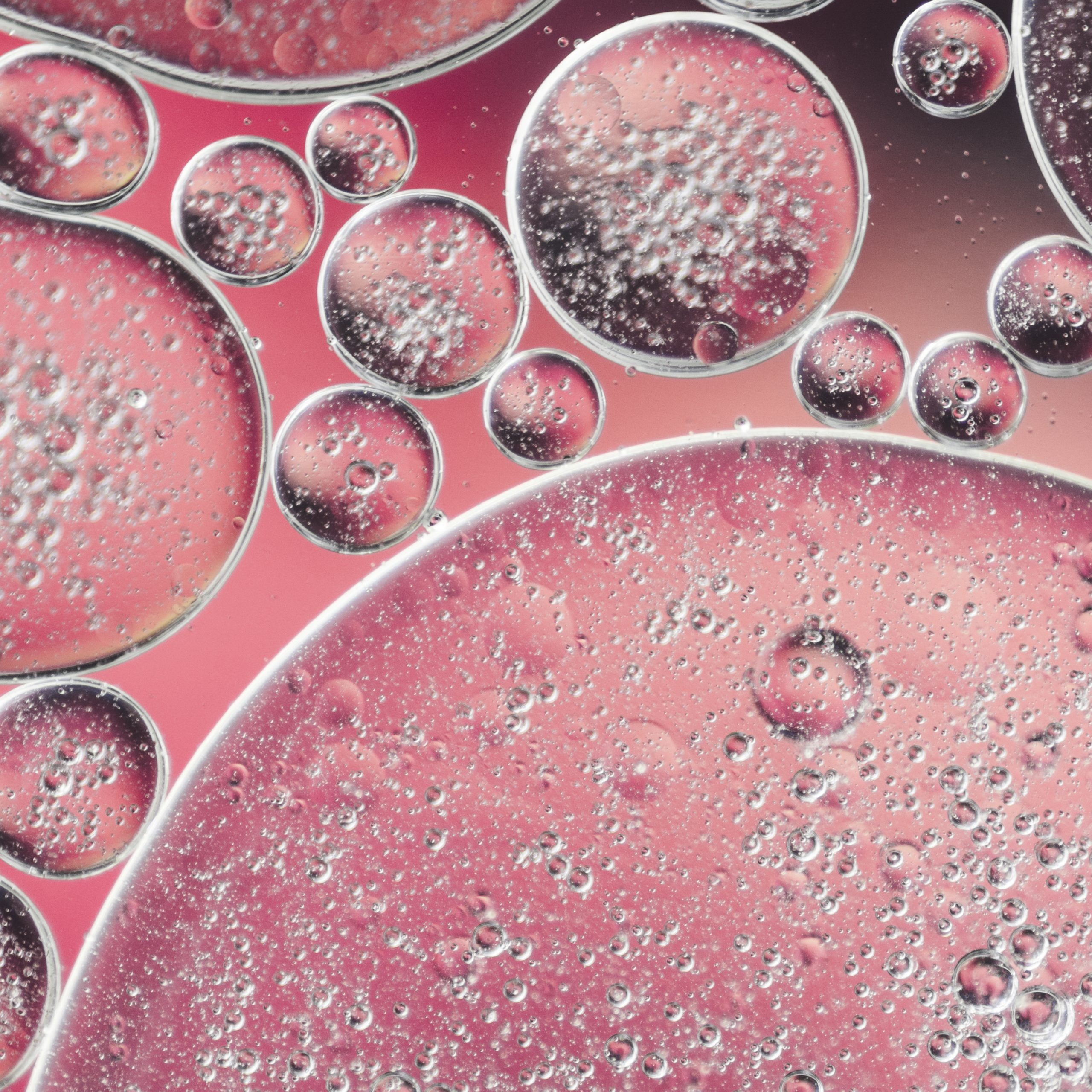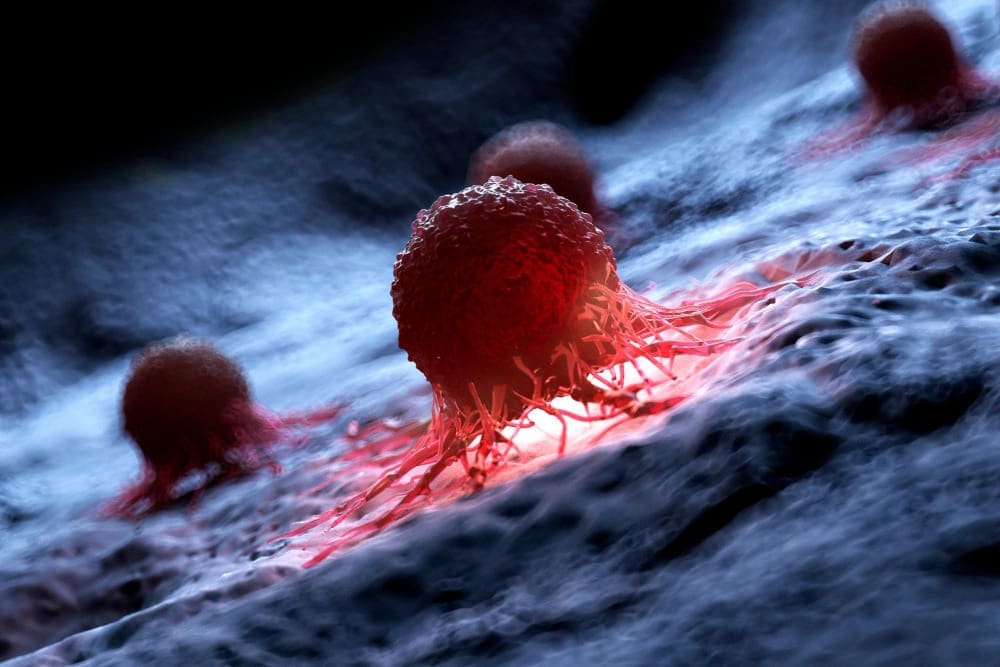Last Updated on November 27, 2025 by Bilal Hasdemir
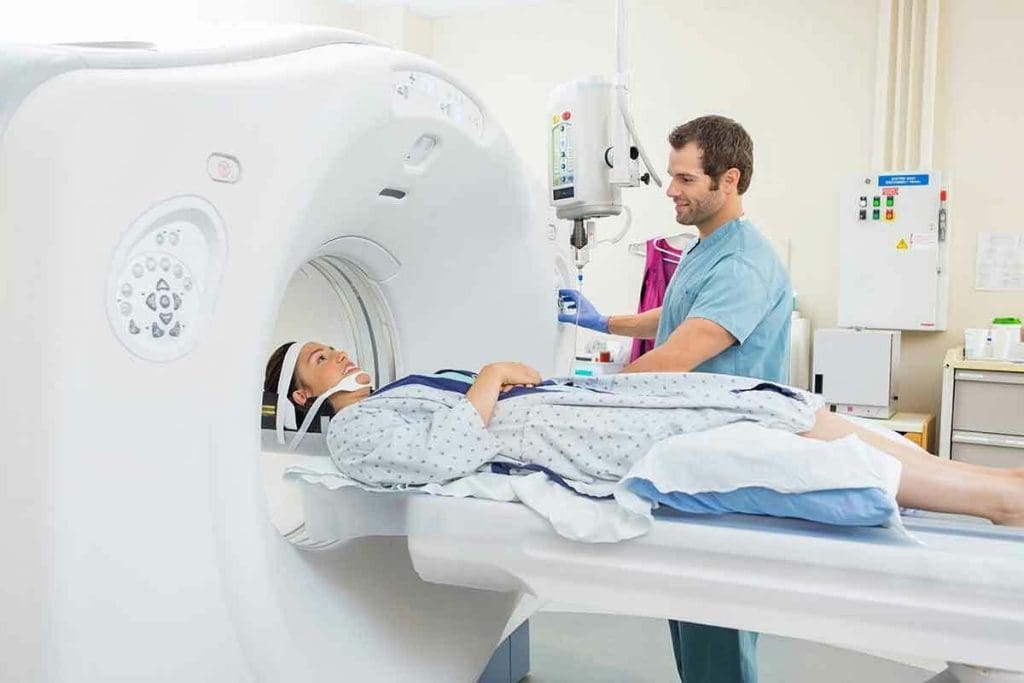
Getting ready for an abdominal CT scan is easy if you know the right steps. Many patients ask, “Can I take Tylenol before a CT scan? Medical experts say Tylenol (acetaminophen) is usually safe to take before a CT scan. It doesn’t interfere with the scan’s results or the preparation process.
To make sure your scan goes well, it’s key to follow your doctor’s prep advice. You can learn more about CT scan prep on the Radnet website. It has all the details you need to get ready for your exam.
Key Takeaways
- It’s generally safe to take Tylenol before an abdominal CT scan.
- Following preparation instructions is key for accurate scan results.
- Your healthcare provider will give you specific prep guidelines.
- Some meds and foods might need to be skipped before the scan.
- Good prep ensures a smooth and successful scan.
Understanding Abdominal CT Scans
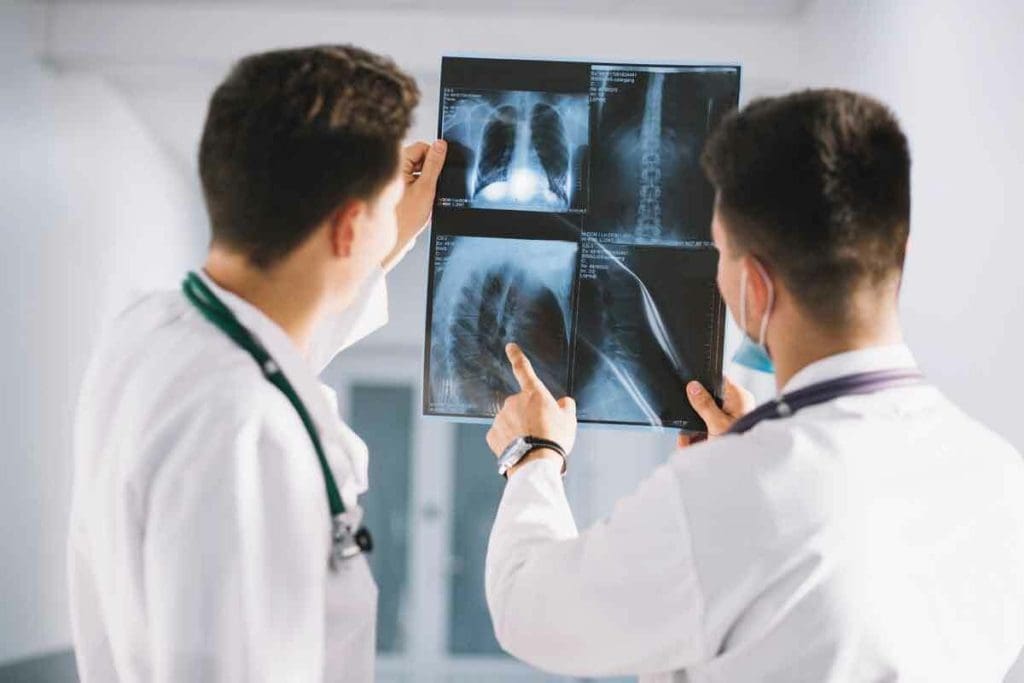
An abdominal CT scan is a non-invasive test that shows detailed images of the abdominal organs. It’s key for spotting injuries, cancers, and infections in the abdomen.
What is an Abdominal CT Scan?
A CT scan of the abdomen uses X-rays and computer processing to create detailed images. It helps doctors see the liver, gallbladder, pancreas, kidneys, and more.
Key components of an abdominal CT scan include:
- X-ray technology
- Computer processing
- Detailed cross-sectional imaging
Common Reasons for Abdominal CT Scans
Doctors use abdominal CT scans for many reasons. They help diagnose and track conditions like:
| Condition | Description |
| Cancer | CT scans spot tumors and check if treatments are working. |
| Injuries | They find internal injuries, like bleeding or organ damage, after trauma. |
| Infections | CT scans help find abscesses or infected organs. |
“CT scans have changed how we diagnose diseases. They let doctors see inside the body without surgery.”
A leading radiologist
Types of Abdominal CT Scans: With and Without Contrast
Abdominal CT scans can be done with or without contrast agents. Contrast agents make some structures or lesions more visible, helping doctors diagnose better.
Whether to use contrast depends on the condition being checked and the patient’s health.
Can I Take Tylenol Before a CT Scan?
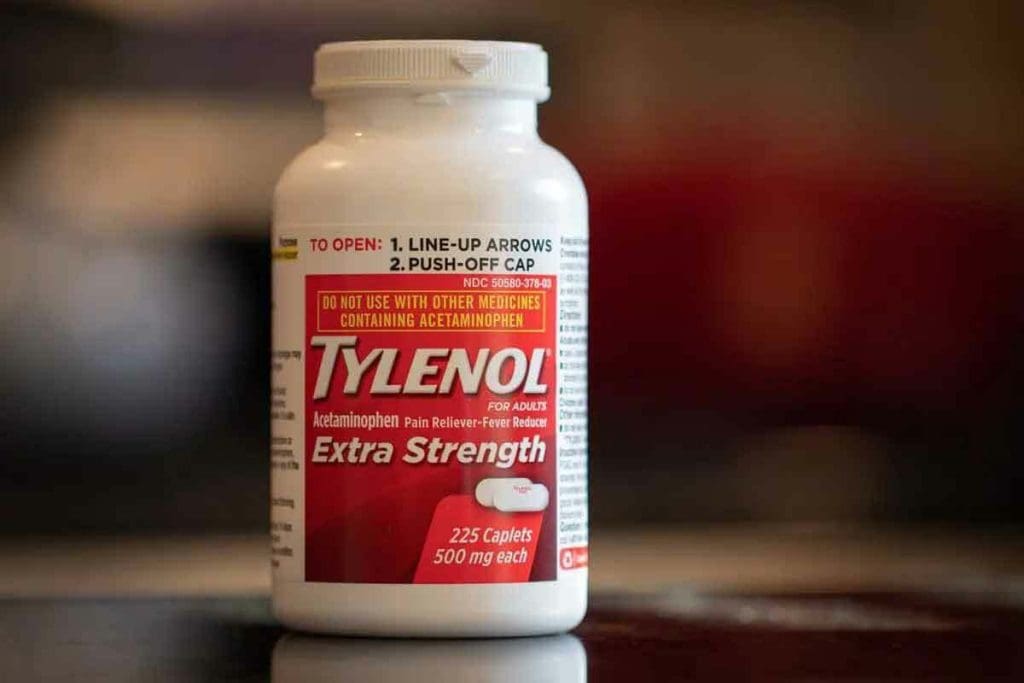
Before a CT scan, knowing if Tylenol is safe is key. Tylenol, or acetaminophen, is a common pain reliever and fever reducer.
Why Tylenol Is Generally Safe Before Imaging
Tylenol is usually okay to take before a CT scan. It doesn’t mess with the imaging process or the contrast agents used. Medical guidelines say acetaminophen is safe before some medical procedures, including imaging studies.
Difference Between Tylenol and Other Pain Medications
It’s important to know the difference between Tylenol and other pain meds. NSAIDs (like ibuprofen) or prescription meds might interact differently with CT scan agents. Tylenol is usually safe because it doesn’t affect CT scan contrast agents.
When to Inform Your Doctor About Tylenol Use
Even though Tylenol is generally safe, you should tell your doctor about it before the CT scan. Share how much and how often you take Tylenol. Your doctor can give advice based on your health, the CT scan type, and other meds you’re on.
In short, Tylenol is usually safe before a CT scan. But telling your doctor about your meds ensures your safety and the scan’s success.
Medications and Supplements to Avoid Before CT Scans
Before getting a CT scan, it’s important to know which medicines and supplements to avoid. This ensures the procedure is safe and effective.
Medications That May Interfere With Contrast Agents
Certain medicines can react with contrast agents in CT scans, causing problems. For example, metformin, a diabetes drug, can raise the risk of lactic acidosis with contrast agents. It’s best to stop metformin before and after the scan, and start it again when kidney function is checked.
Other medicines, like blood thinners and some diabetes drugs, might need to be adjusted or stopped. This is to avoid interactions with the contrast agent.
Timing of Medication Restrictions
The time to stop or adjust medicines before a CT scan varies. Always talk to your doctor for specific advice. For metformin, stopping 48 hours before the scan is often recommended. The table below lists some common medicines and when to adjust them.
| Medication | Timing of Adjustment | Reason |
| Metformin | Stop 48 hours before scan | Risk of lactic acidosis |
| Blood Thinners (e.g., Warfarin) | Adjust as directed by doctor | Risk of bleeding |
| Certain Diabetes Medications | Stop on the day of the scan | Potential interaction with contrast |
Special Considerations for Patients With Chronic Conditions
People with chronic conditions, like diabetes or kidney disease, need special care before a CT scan. It’s key to tell your healthcare provider about your condition and any medicines you’re taking. This helps get advice tailored to your needs.
For those with kidney disease, it’s important to take steps to protect your kidneys during the scan. This might include hydration before and after, or changing when you take certain medicines.
Fasting Requirements for Abdominal CT Scans
Abdominal CT scans often need fasting, but the details can change based on contrast use. Fasting is key to ensure scan quality and accurate results.
Standard Fasting Guidelines for Different Scan Types
Fasting rules for abdominal CT scans vary by scan type and contrast use. For scans with contrast, fasting is needed to lower risk of issues.
- For CT scans without contrast, fasting might not be needed. But, always follow your healthcare provider’s specific instructions.
- For scans with oral contrast, drinking a contrast material hours before is required. Fasting rules will vary.
- For scans with IV contrast, fasting for 2-4 hours is common. This helps avoid nausea and other bad effects.
Do You Have to Fast for All CT Scans?
Not every CT scan needs fasting. Whether you need to fast depends on the scan type and your healthcare provider’s instructions. It’s important to follow these carefully for the best results.
For more info on CT scans and prep, check out these healthcare guides.
Managing Medications During Fasting Periods
It’s vital to manage your meds during fasting to avoid problems. Always talk to your healthcare provider about taking meds while fasting.
Tips for managing medications:
- Take your meds with a little water if your doctor says it’s okay.
- Don’t take meds on an empty stomach unless your doctor tells you to.
- Let your healthcare provider know about all your meds and supplements.
Fluid Intake Guidelines Before Your Procedure
Drinking fluids before a CT scan is important for its success and your comfort. It’s vital to know which fluids are okay and when to drink them.
Can You Drink Water Before a CT Scan With Contrast?
Drinking water before a CT scan with contrast is usually okay, but check with your doctor first. Staying hydrated is key, as it helps your kidneys work better with the contrast material.
Key Points to Consider:
- Always ask your doctor or the imaging center about fluid intake rules.
- Some places might want you to arrive already hydrated, while others might have specific rules.
- Water is best, but other clear liquids might also be okay.
Clear Liquids: What’s Allowed and What’s Not
Clear liquids are usually okay before a CT scan. But, it’s important to know what counts as a clear liquid. Clear liquids include:
- Water
- Clear broth
- Plain gelatin
- Black coffee or tea (without cream or sugar)
But, avoid these liquids:
- Milk and dairy products
- Fruit juices with pulp
- Carbonated beverages
- Any liquid with coloring or pulp
Hydration Recommendations Before and After Scans
Staying hydrated is key before and after your CT scan, more so if contrast material is used. Drinking water helps your body get rid of the contrast agent. Your doctor might give you special hydration advice based on your health and the scan type.
Post-Scan Hydration Tips:
- Drink water regularly after your scan to help flush out the contrast material.
- Avoid hard activities for a few hours after, but keep drinking water as usual.
- If you have kidney problems, follow your doctor’s hydration and contrast advice.
Understanding CT Scan Contrast Agents
Knowing about contrast agents is key for an abdominal CT scan. These substances improve medical imaging quality. They help doctors spot different conditions more clearly.
Types of Contrast Materials Used in Abdominal Imaging
Abdominal CT scans use two main contrast types: oral and intravenous (IV). Oral contrast is a liquid you drink. It shows the gastrointestinal tract. IV contrast goes into a vein. It makes blood vessels, organs, and more visible.
What to Expect When Drinking Contrast Material
Drinking oral contrast involves a liquid you drink before the scan. The taste can be different, and some find it not pleasant. It’s important to follow your doctor’s instructions for the best results.
IV Contrast: Procedure and Purpose
IV contrast goes into a vein in your arm. It’s a quick process. The contrast agent is given through a needle. It’s used to show specific body areas, like blood vessels and organs. This helps in finding tumors, infections, and vascular diseases.
Potential Side Effects and Allergic Reactions
Contrast agents are usually safe, but some may have side effects or allergic reactions. You might feel nauseous, vomit, or dizzy. Severe allergic reactions are rare but serious. Always tell your doctor about any allergies or past reactions before a CT scan.
Comprehensive Preparation for Abdominal CT With Contrast
To make sure your abdominal CT scan with contrast goes smoothly, follow a detailed preparation plan. This guide will help you get ready for your scan. You’ll learn the steps to take before your scan.
48-24 Hours Before Your Scan
Start preparing for your abdominal CT scan with contrast 48-24 hours before. You might need to change your diet and medication. Always follow the instructions from your healthcare provider or the imaging center.
- Avoid eating foods that are high in fiber or difficult to digest.
- Tell your doctor about any medications you’re taking, like metformin for diabetes.
- Some medications may need to be paused or adjusted before the scan.
The Morning of Your Scan
On the day of your scan, take these steps to get ready:
- Follow fasting instructions: You might need to fast before the scan. It’s very important to follow these guidelines.
- Hydrate: Drink clear liquids as your healthcare provider tells you to. This helps with the contrast agent.
- Wear comfortable clothing: Choose loose-fitting clothes without metal fasteners.
- Remove any metal objects: This includes jewelry, glasses, and any removable dental work.
At the Imaging Center: Check-in to Procedure
When you arrive at the imaging center, you’ll go through a check-in process. Then, you’ll get ready for the CT scan:
- Arrive at least 30 minutes before your scheduled appointment time.
- Bring any required documents, including insurance cards and identification.
- You will be asked to change into a gown and remove any metal objects.
- The technologist will explain the procedure and answer any questions you may have.
Special Preparations for Specific Abdominal Studies
Depending on the type of abdominal CT scan you’re having, you might need extra preparation. For example:
| Scan Type | Special Preparation |
| CT Abdomen and Pelvis | May require oral contrast the night before or morning of the scan. |
| CT Colonography | Involves bowel preparation similar to a colonoscopy. |
It’s very important to follow the specific instructions given by your healthcare provider or the imaging center. Preparation details can vary a lot. By being well-prepared, you can help ensure your abdominal CT scan with contrast is successful and accurate.
What to Expect During an Abdominal CT Scan
Knowing what to expect during an abdominal CT scan can help reduce anxiety. This procedure is key for diagnosing many abdominal issues. Being informed can make the experience smoother.
How Long Does a CT Scan Without Contrast Take?
A CT scan without contrast is quick. The scan itself takes less than 15 minutes. But, patients should plan to spend about 30 to 60 minutes at the imaging center.
This extra time is for preparation, changing into a gown, and any instructions or questions. The exact time can vary based on the scan’s needs and the center’s efficiency. Arriving early to complete paperwork is a good idea.
The Scanning Process Step by Step
The abdominal CT scan process involves several steps:
- Preparation: Patients will be asked to change into a hospital gown and remove any metal objects or jewelry that could interfere with the scan.
- Positioning: The patient lies on a table that slides into the CT scanner. The technologist will ensure the patient is positioned correctly to capture the required images.
- Scanning: The table moves slowly through the scanner, which takes X-ray images from different angles. The patient may be asked to hold their breath for a few seconds during certain parts of the scan.
- Contrast Administration (if needed): For scans with contrast, the patient may be given a contrast material orally or through an IV line. This helps highlight certain areas or structures within the abdomen.
Sensations You May Experience During the Procedure
During the CT scan, patients may experience some sensations, though it’s generally painless:
- Table Movement: The table will move slowly through the scanner. This movement is usually smooth but can be a new experience for some patients.
- Noise: The CT scanner makes clicking or whirring noises as it takes images. This is normal and not a cause for concern.
- Contrast Injection: If an IV contrast is used, patients might feel a cold sensation or a slight pinch when the contrast is injected.
- Breath-Holding: Patients may be asked to hold their breath for short periods. This helps ensure clear images are captured.
Overall, the abdominal CT scan is a safe and effective diagnostic tool. Being prepared for what to expect can help reduce anxiety and make the process as smooth as possible.
After Your CT Scan: Recovery and Follow-up
After a CT scan, knowing how to recover is key. The steps you take right after can affect your experience and results.
Immediate Post-Scan Care and Monitoring
Right after your scan, you’ll be watched for any bad reactions to the contrast material. This happens in the recovery area of the imaging center.
Key aspects of immediate post-scan care include:
- Watching for allergic reactions or other bad effects
- Drinking water to get rid of the contrast material
- Learning how to handle any side effects
When to Resume Normal Diet and Activities
Usually, you can go back to your normal diet and activities soon after the scan. If you got contrast material, drinking lots of water helps get rid of it.
| Activity | Guideline |
| Eating and Drinking | Go back to your usual diet unless told not to |
| Physical Activities | Go back to normal activities; avoid hard exercise if it hurts |
| Medication | Keep taking it as told; talk to your doctor if worried |
Understanding Your Results and Next Steps
How long it takes to get your CT scan results varies. Your doctor will tell you when to expect them and what to do next.
It’s important to follow up with your doctor to understand your results and what to do next. This might include more tests, seeing a specialist, or starting treatment.
Knowing about recovery and follow-up after a CT scan helps you navigate your health journey better. It ensures the best outcomes for your health.
Conclusion
Preparing for an abdominal CT scan is important. It involves several key steps. These steps help ensure the scanning process goes well.
Understanding what medications to stop, when to fast, and how much fluid to drink is key. This helps get accurate results.
It’s vital to listen to your healthcare provider’s specific instructions. They might have extra rules for you. This is because of your unique needs and the type of CT scan.
Following these guidelines makes the procedure smoother and more efficient. This leads to a more accurate diagnosis and better treatment plans.
Always follow the specific instructions for your scan. This ensures the best possible outcome.
FAQ
Can I take Tylenol before a CT scan?
Taking Tylenol before a CT scan is usually okay. But, it’s important to tell your doctor you’re taking it.
Do I have to fast for a CT scan of my abdomen?
Whether you need to fast for a CT scan depends on the type. Some scans, like those with contrast, might require fasting.
Can I drink water before a CT scan with contrast?
Drinking water before a CT scan with contrast is okay. Just make sure to follow your doctor’s specific instructions.
What type of contrast material is used in abdominal CT scans?
Abdominal CT scans use either oral or IV contrast. Oral contrast is a barium or iodine solution. IV contrast is iodine-based.
How long does a CT scan without contrast take?
A CT scan without contrast usually takes a few minutes to finish.
What should I expect during an abdominal CT scan?
You’ll lie on a table that slides into the CT scanner. You might need to hold your breath or stay very quiet. The scan is painless.
Can I resume normal activities after a CT scan?
Usually, you can go back to normal activities right after a CT scan. Unless your doctor tells you not to.
How will I receive the results of my CT scan?
Your doctor will let you know when and how to get the scan results. Results might be ready soon after or take a few days.
Are there any side effects from CT scan contrast?
Some people might have side effects from contrast, like allergic reactions or kidney issues. Tell your doctor if you’re worried.
Can I eat or drink before a CT scan?
Instructions for eating and drinking before a CT scan vary. Sometimes you need to fast, other times you can have clear liquids.
What preparations are needed 48-24 hours before a CT scan?
You might need to adjust your medications or avoid certain foods 48-24 hours before. Always follow your doctor’s instructions.
What happens if I don’t follow the preparation instructions for my CT scan?
Not following instructions might mean you have to reschedule your scan. It could also affect the scan’s accuracy.
Reference
- National Institute of Diabetes and Digestive and Kidney Diseases. (2025). Managing diabetes during imaging tests. Retrieved October 10, 2025, from https://www.niddk.nih.gov/health-information/diagnostic-tests/images
- Morcos, S. K. (2005). Contrast media: interactions with other drugs and clinical implications. European Radiology, 15(7), 1525-1530. https://pubmed.ncbi.nlm.nih.gov/15968520/


